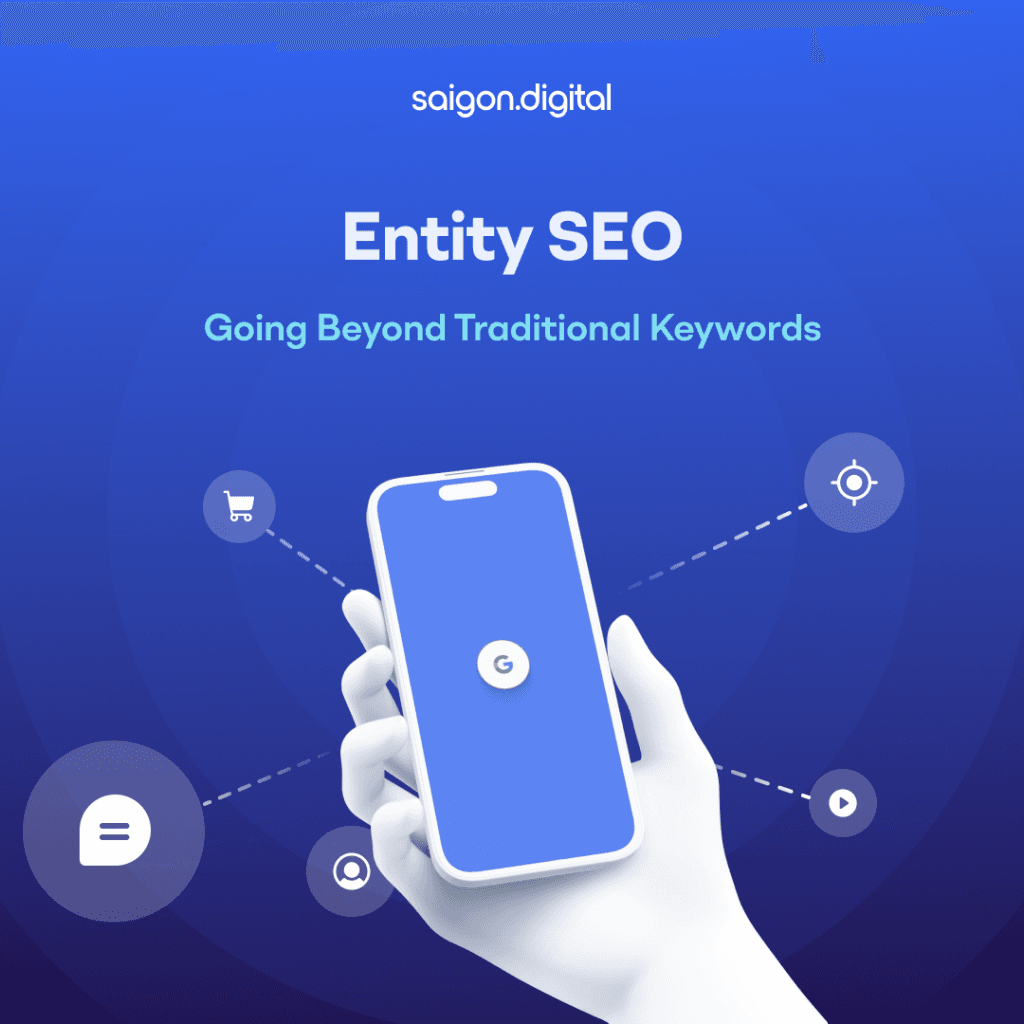
What Is Entity SEO?
Entity SEO refers to the practice of optimising web content around entities, that is, specific, well-defined things or concepts, rather than just strings of keywords. In the context of Google’s Knowledge Graph, an entity could be a person, place, product, organisation, event, or even an abstract concept like “sustainability” or “SEO”. Put simply, an entity is a unique and unambiguous idea that search engines can understand independently of language or syntax. For example:- “Apple” could refer to a fruit or the famous tech company. As an entity, each has its own unique identity within Google's Knowledge Graph.
- “Harvard University” is more than a string of text, it’s a globally recognised entity with connections to other concepts (e.g. US presidents, Ivy League, etc.)
Why Traditional Keyword SEO Is No Longer Enough
Keyword-based SEO, while still foundational, is increasingly limited in a world of natural language processing ( NLP ), AI-driven search (like Google’s MUM and BERT), and voice search. The way people search has changed, they ask questions, speak in full sentences, and expect contextually rich answers. Here’s why relying solely on traditional keyword targeting can fall short:Lack of Context
Traditional keyword optimisation often focuses on exact match phrases without considering the broader meaning behind them. This creates a challenge for search engines, which must interpret whether a page about “jaguar” refers to the animal, the car brand, or the sports team. Without deeper contextual signals, even well-optimised pages can be misinterpreted or overlooked. Entity SEO addresses this gap by aligning content with clearly defined concepts, helping Google understand the true subject matter of your content, not just the words used.User Intent Mismatch
Ranking for a keyword doesn't necessarily mean you're meeting the user’s intent. For example, a page optimised for “best coffee machines” might attract both buyers and researchers, but only one of those groups is likely to convert. Traditional SEO often misses these nuances, leading to higher bounce rates and lower engagement. Entity SEO allows you to tailor content to specific types of intent (informational, transactional, navigational), improving relevance and user satisfaction.Reduced Topical Authority
When content is created solely around standalone keywords, it tends to be fragmented and shallow. This makes it harder for search engines to recognise your site as a comprehensive authority on a subject. In contrast, entity SEO promotes building interconnected content ecosystems that reflect a deep understanding of the topic. This not only boosts your credibility in the eyes of search engines but also enhances the user experience by offering more meaningful and complete information. Entity SEO overcomes these issues by focusing on meaning and relationships, not just match phrases.How Search Engines Use Entities
Google introduced the Knowledge Graph in 2012 to map the world’s information in a structured, interconnected way. It underpins how the search engine understands the relationships between people, places, things, and ideas. For example, when you search for "Leonardo da Vinci", Google shows a panel of structured information, his birth year, known works, related figures, etc. That’s all powered by entities. Through advanced NLP, Google breaks down content into entities and relationships:- Who is being talked about?
- What are they connected to?
- How does this piece of content relate to known topics?
The Key Benefits of Entity SEO
Entity SEO isn’t just about appeasing search engines. It has real, practical advantages for your digital presence:Improved Search Visibility
By aligning with known entities and topics, you increase your chances of appearing in rich snippets, knowledge panels, and other SERP features that dominate above-the-fold real estate.Enhanced Semantic Relevance
Google can better interpret the context of your content, especially for long-tail, conversational, or voice searches, leading to more relevant traffic.Stronger Topical Authority
Entity-based content clusters signal to search engines that your site is a comprehensive resource on a subject, improving domain-level ranking potential.Future-Proofing Against Algorithm Changes
Google’s algorithm updates (especially core updates) increasingly reward semantically rich, well structured content. An entity-driven strategy is better aligned with these changes.How to Optimise for Entity SEO
Implementing entity SEO is less about chasing quick wins and more about building a solid, interconnected content ecosystem that clearly communicates your brand’s place in the wider knowledge graph.Identify Core Entities Relevant to Your Brand
Start by identifying the primary entities that are central to your niche, products, and services. Tools like Google’s Knowledge Graph Search API, Wikidata, and Kalicube can help. Example: A digital agency like Saigon Digital might focus on entities such as "Search Engine Optimisation", "Google Analytics", "Digital Marketing", or even geographic entities like "Ho Chi Minh City".Use Structured Data Markup
Implement Schema.org markup to explicitly define entities in your HTML. This helps search engines better categorise and connect your content. At a minimum, you should consider:- Organization or LocalBusiness schema for your brand
- Article schema for blog content
- Person schema for authors or team members

Build Content Around Entity Relationships
Don’t just write isolated blog posts. Create interconnected content hubs that explore the relationships between topics. For example:- Main Page: “What Is Entity SEO?”
- Supporting Pages: “How the Google Knowledge Graph Works”, “Entity SEO vs Traditional SEO”, “Using Schema Markup for Entity SEO”, “Entity SEO for Local Businesses”, etc.
Create or Claim a Knowledge Panel
Having a Knowledge Panel increases credibility and visibility. While it’s not guaranteed, you can improve your chances by:- Having a Wikipedia or Wikidata entry (if notable)
- Being listed consistently in authoritative databases
- Using consistent brand information across the web (Name, Address, Phone)
- Leveraging platforms like Crunchbase, LinkedIn, and industry directories
Use Natural Language and Contextual Writing
Instead of stuffing keywords, write for humans in clear, contextual language. Use synonyms, related terms, and descriptive phrases that naturally reinforce your entities. For instance, instead of repeating “ web development agencies in Ho Chi Minh City ”, vary your language with phrases like:- “Web development specialists based in Ho Chi Minh City”
- “Vietnamese web development firm”
- “Custom digital strategy agency for APAC brands”





